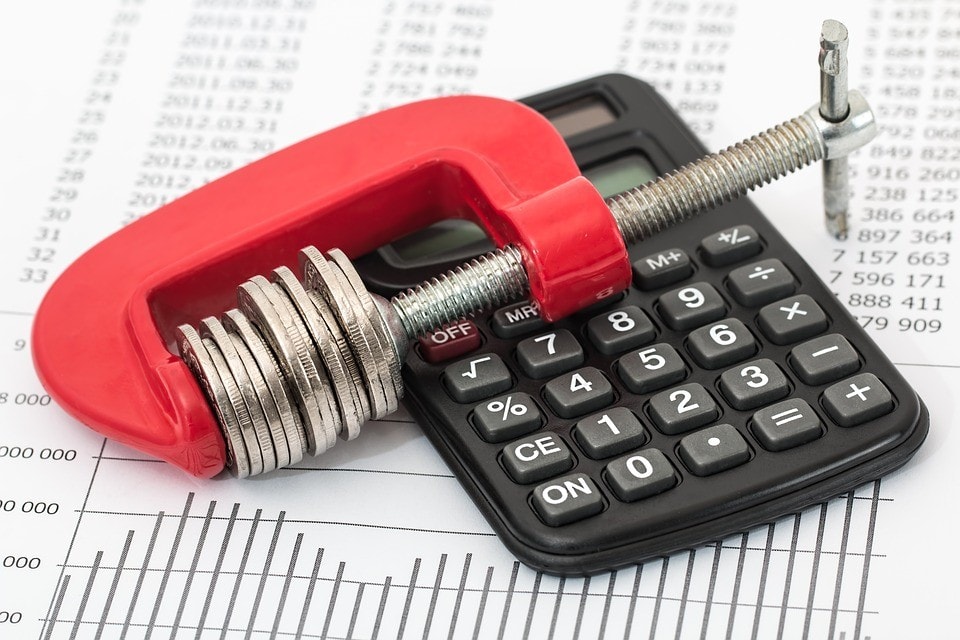Money is a matter that affects us all. Regardless of how much cash you have or how many savings accounts are open in your name, we all think about money on a daily basis. It doesn’t matter whether you’ve got too much, not enough or you’re channelling Goldilocks and you’re just right. You need to have control of your finances. If you’re keen to be more stringent with saving or you’re looking for ways to be savvier when it comes to spending, you’ve come to the right place. Here are some tips to help you personalize your financial plans.
Budgeting

Budgeting is the first step to assuming control of both spending and saving. If you take a minute to draw up a budget every week or once a month, this will enable you to foresee potential cash flow issues, work out how much money you have available to spend and set up a saving pot. If you don’t already stick to a budget, it’s very easy to do. At the beginning of the month, sit down with a piece of paper, open a spreadsheet or even use an app and note down every payment that you know is coming out of your account that month. This includes bills, your rent or mortgage and additional items such as health or vehicle insurance. Once you’ve done this, write down one-off costs you’ll encounter that month, for example, birthday gifts for your partner or spending money for a weekend away. In the final column, note down your expected income and any other payments you will receive that month. Once you’ve got all the numbers in front of you, it’s easy to work out how much of your income is disposable and how much you could save each month. If you’ve got a figure in mind, you can set up a savings account and then link your accounts and transfer a set amount each month.
Your Saving Strategy

Everyone is different, and you may have completely different reasons for saving to somebody else. It’s always wise to tailor your strategy to suit your preferences and needs. At the beginning of a saving drive, work out how much you want or need to save and how long you have available. Work out a schedule that suits you. You don’t want to be scrimping so much that you’re down to the last dime come payday, but if you can be strict with saving, this will help you reach your targets within the desired timeframe. Work out a plan that fits with your income and look into ways you can make life slightly more comfortable by trimming down costs to give you more breathing space. If you don’t have savings accounts open or you’re looking into investing money to try and boost your balance, it’s worth meeting with a financial adviser.
Keeping an Eye on Spending
For many of us, there simply isn’t enough cash available at the end of the month to save a substantial amount. However, for some of us, we don’t save as much as we could as a result of overspending. If you’re guilty of spending any money you have left in your account as payday nears, we’ve got you covered. Here are some tips to help you reduce spending.
Look for Cheaper Ways to Shop

If you don’t want to sacrifice the odd treat, that’s absolutely fine, as long as you can afford these little luxuries. If you’re a fan of shopping and this is your downfall, look for ways to get more for your money. There’s nothing quite like the thrill of getting a bargain. Shop for new and used items, look out for promotions at your favorite online stores, sign up to mailing lists and read articles about sites that can save you money like Dealdash featured on Huffingtonpost. If you can buy the items you want or need at a discounted price every time, this could lead to substantial savings over the course of months or years. Online shopping is great because it enables you to haggle or bid for bargains and you can also compare prices from different retailers before you add an item to your cart.
Lower Living Costs

Take a look at your budget, and work out how much you spend on commuting, bills, groceries and socializing. You may be surprised at just how much you’re paying out every month. The good news is that if this figure is too high, there are multiple ways of bringing it down.
Start with your bills. You may not be able to negotiate a better rate on your mortgage or rent, but consider making calls and using the Internet to compare prices for electricity, TV and broadband and home and health insurance. Spending a few minutes online could save you a small fortune. As well as gaining access to better deals, you can also reduce spending by taking steps to use less energy and cut the cost of your commute. If you can cycle or walk to work a few times a week, this could save you a lot of gas money over the course of a month. If you’re paying off a credit card, it’s also worth looking at balance transfer options to lower your monthly payments. Once you’ve tackled the essentials, turn your attention to luxury items. Be stricter when you’re shopping for things you don’t actually need and embrace cheaper ways of socializing. You don’t have to go out all the time. Staying in can be just as fun. Swap a fancy restaurant for a dinner party and take it in turns to cook with your friends. As long as you’ve got good company, you’ll have a great time, and you don’t have to dread splitting the bill at the end.
Are you on a mission to organize your finances or improve your financial situation? If so, it’s wise to take control of spending and saving as quickly as possible. Tailor your plans, make budgeting a priority and look for ways you can cut costs and increase the amount you can save each month.





